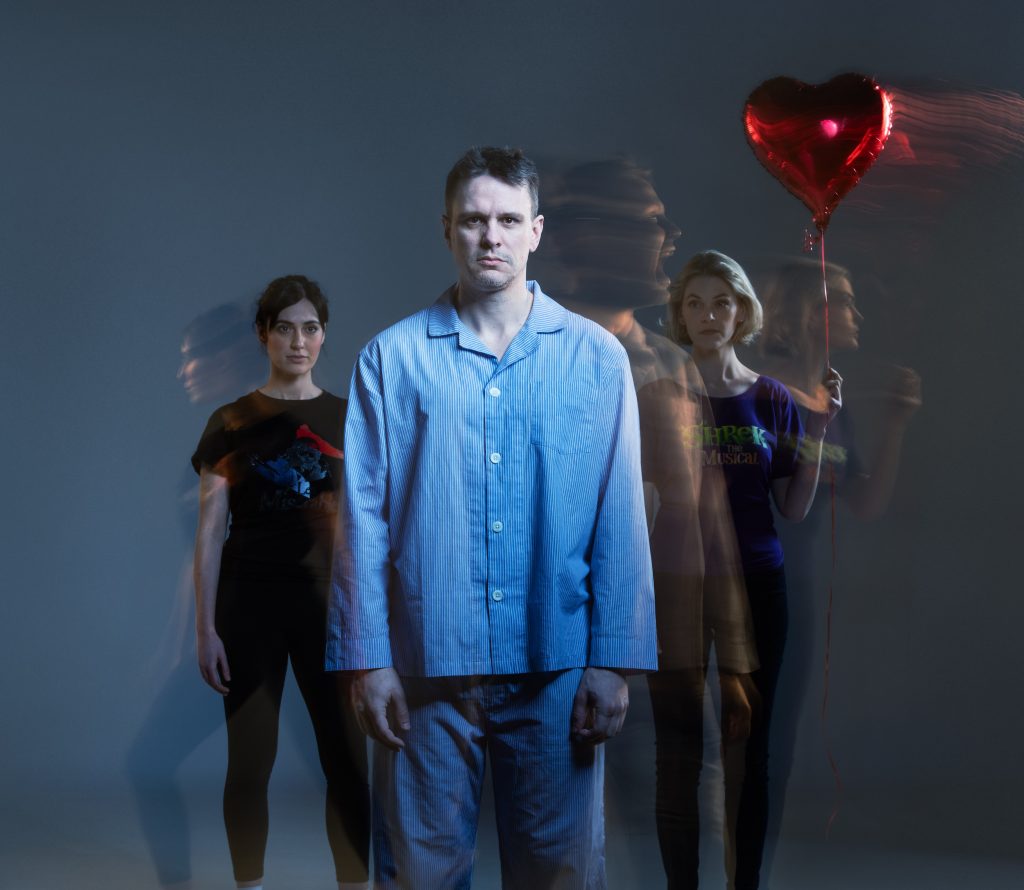
Credit: Emily Cooper
The Vancity Culture Lab at the Cultch to June 23, 2024
Tickets from $38 at www.pitheatre.com
Posted June 16, 2024
When the real is beginning to look like the surreal – wildfires, floods, the Mackenzie River drying up – I don’t need to go to the theatre for surrealism. That being said, I was completely rivetted by Medicine, now on stage at the Vancity Culture Lab at the Cultch. Written by Irish playwright Enda Walsh, the play is undisputedly surreal, dreamlike, weirdly nightmarish.
And it sure took me down a lot of rabbit holes. Can it simply be what it appears to be: a patient in a mental institution going through drama therapy with a couple of actors? Or does it revisit Ireland’s long-suffering relationship with the Catholic church? Or is it really about the Republic of Ireland, Northern Ireland and the UK? Why the Irish accents other than that the playwright is Irish? Why the wind-tunnel? Why an actor dressed like a lobster?
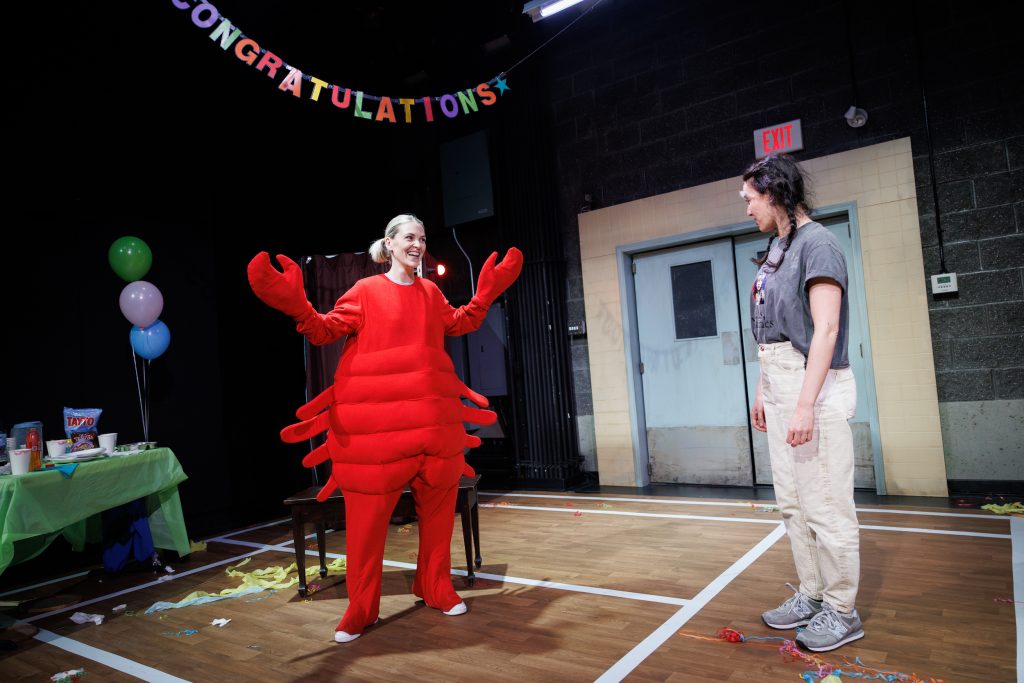
Finally, I think Walsh’s play actually is about a patient experiencing drama therapy with an unseen (voice over) therapist and a couple of local actors. But it’s from the point of view of the disturbed patient – hence the nightmare quality.
Ginger-haired John (Jay Clift), now an adult, knows he was unloved, unwanted by parents Margaret and Sean. “We shouldn’t a’ had that boy, Margaret”, he hears his father say when John was just a child. He remembers being left for an hour in the bath when his mother took off – until he cried. And what about his mother playing Mary Magdalene in the church pageant? Does he suspect or know his mother is the village floozy? And then comes the day when the other boys at school force him to wear a dress and he has to walk four miles home in shame: “Put on this dress and we won’t kill you.” By this time, John is convinced he is different and unworthy of being loved.
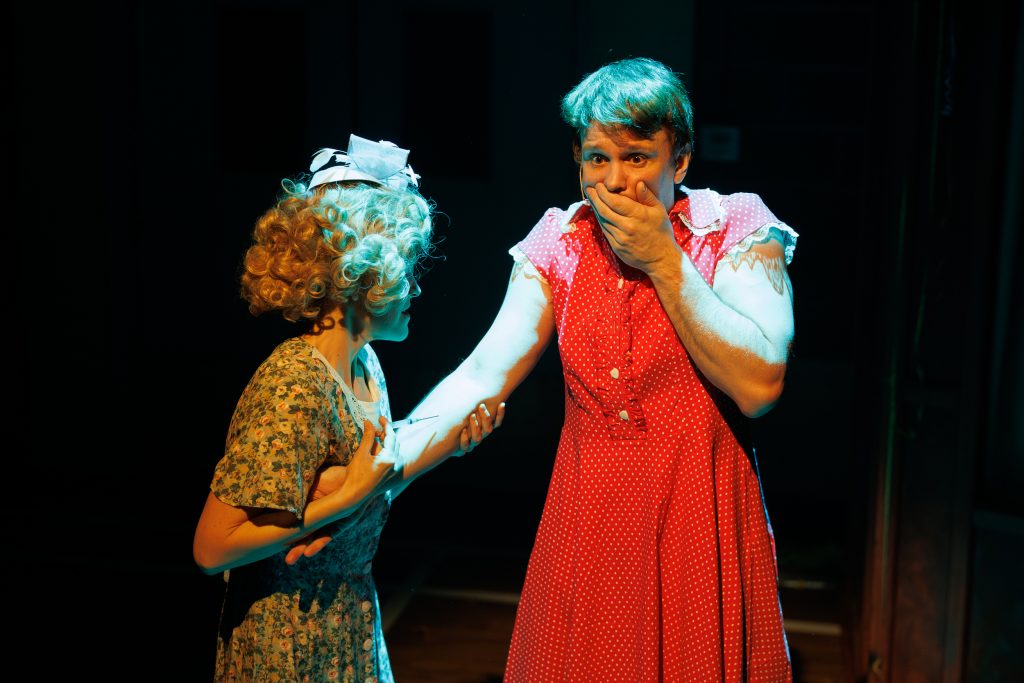
Credit: Sarah Race Photography
And then there are the hired therapy actors, Mary (Genevieve Fleming) and Mary (Nyiri Karakas). Why are they both called the same name? Perhaps because in the mental health system the caregivers may appear to be all the same to the patients: nameless, faceless, uncaring, sometimes brutal? Throughout the therapy session, Mary and Mary take on the personas of Margaret, Sean and other characters as they become part of John’s story. Fleming’s Mary (Mary 2) is brisk, condescending and efficient; Karakas’ Mary (Mary 1) is gentler, more understanding, giving. Between them is a power dynamic with Mary 2 repeatedly telling Mary 1 that she is only the “secondary” actor, not much more than a technician.
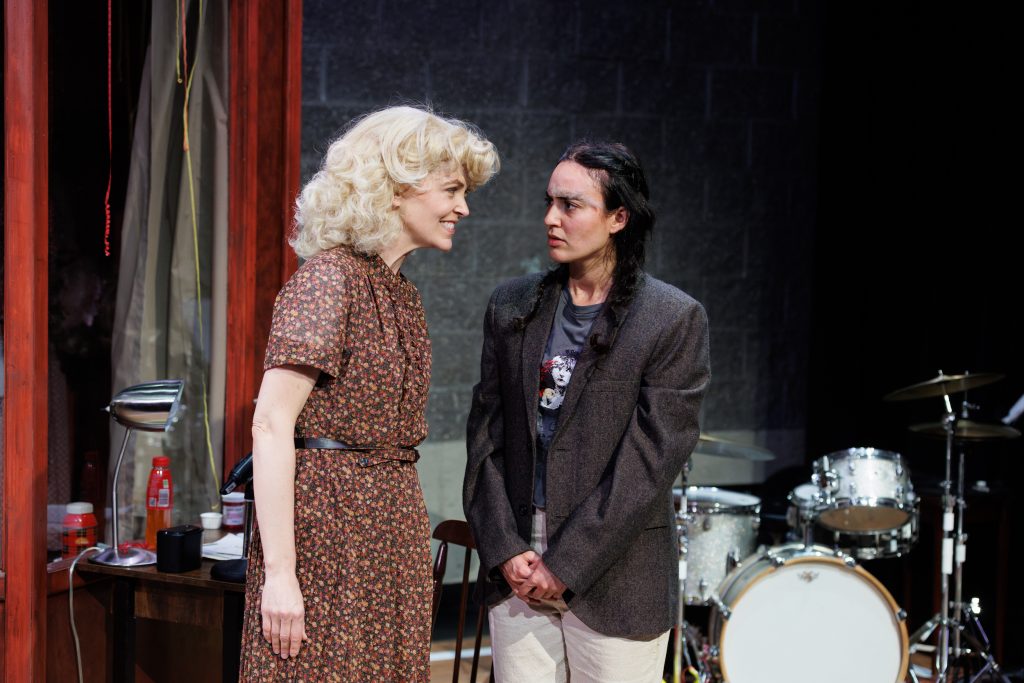
Credit: Sarah Race Photography
Confusion reigns from the outset with David Roberts’ set in which a party has recently taken place: a table with empty plates, snack food bags, balloons and a banner reading, “Congratulations”. Centre stage is a strange wooden booth with glass windows. When the door opens a huge wind emanates from it. It functions as something like a green room where Fleming dons various dresses and wigs. Stage left is baseball-capped percussionist Stephen Lyons, who walks on and off, taking his breaks as prescribed by his union and seemingly oblivious to what’s going on.
Surreal. But strangely compelling.
pi theatre has a history of presenting challenging, mind-bending theatre and Medicine is no exception. Under Richard Wolfe’s superb direction, Jay Clift’s performance as John is simply stellar. In a lengthy monologue late in the 80-minute play, Clift delivers a heart-wrenching outpouring: “Other people tell me I’m not like them.” He makes the character so sweetly, painfully vulnerable to his treatment, his ‘medicine’. We do not know why John has ended up in this place only that his parents committed him.
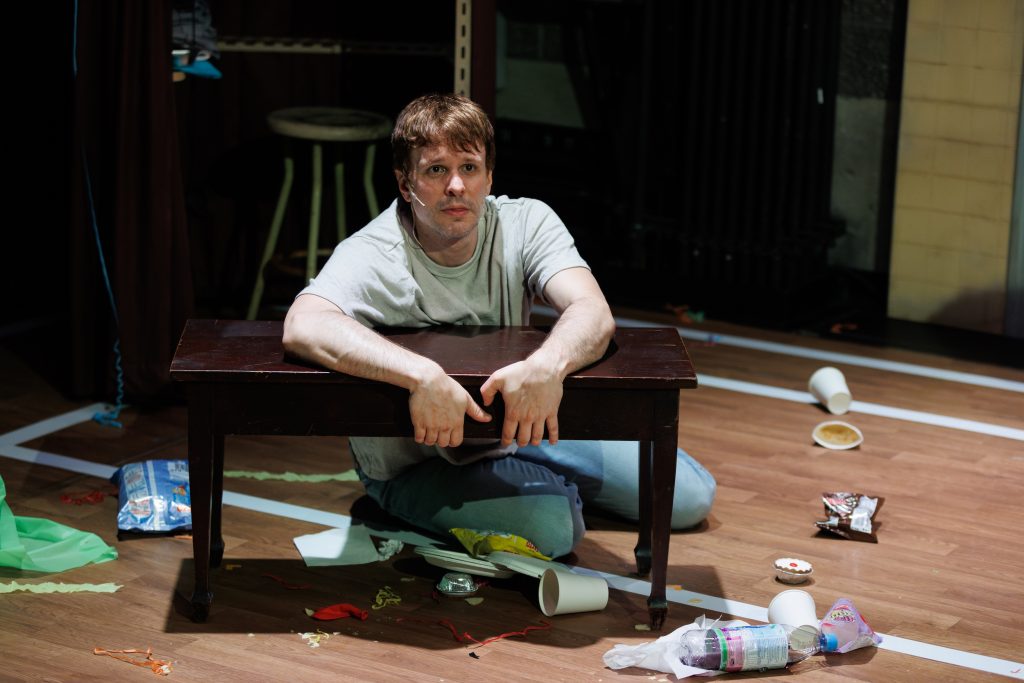
Credit: Sarah Race Photography
Fleming’s Mary is nastiness and efficiency personified. But it is Fleming’s physicality that is fantastic especially as she writhes and twists and scrambles to return to the booth with the fierce wind coming from it. As Margaret, Fleming vamps and flirts and dances, red lipstick, big blond wig and all.
Nyiri Karakas may play the secondary Mary for most of the play but in the end, her character provides some light at the end of John’s lonely tunnel. Maybe. We can’t be sure.
Medicine works best when it nearly kills you – or so the saying goes. This Medicine won’t kill you and maybe it will ring alarm bells about what director Wolfe says, “what can happen to those who are not like Other People, those who are damaged by the world around them – and then forgotten.”
Medicine is an evening in the theatre you will not forget.

